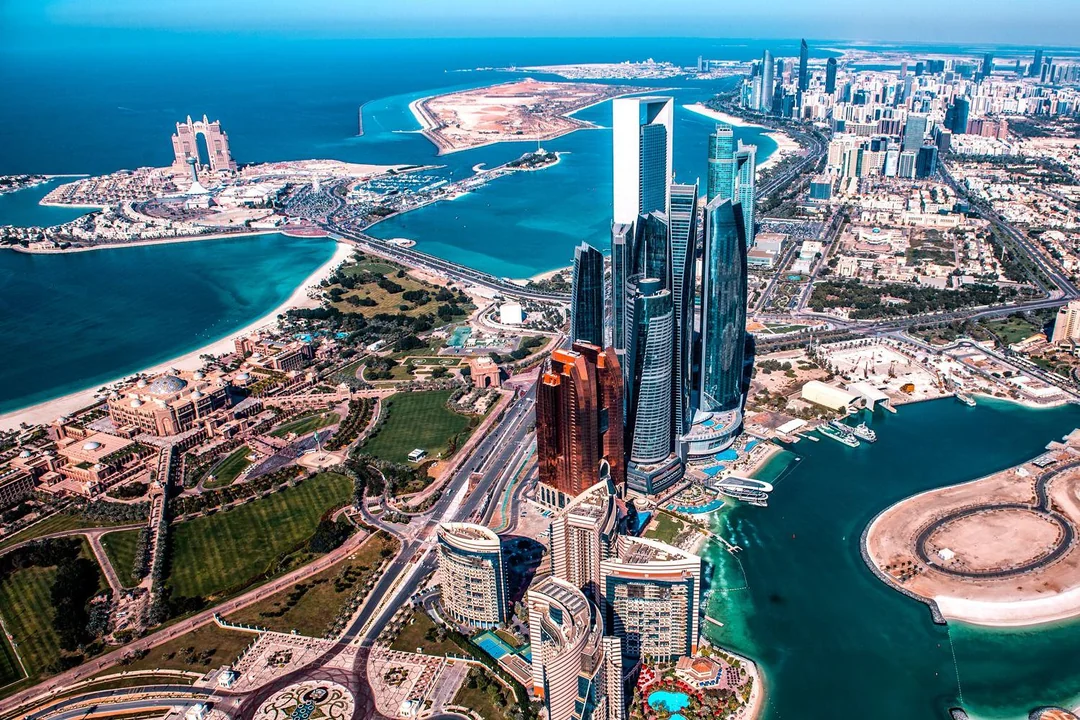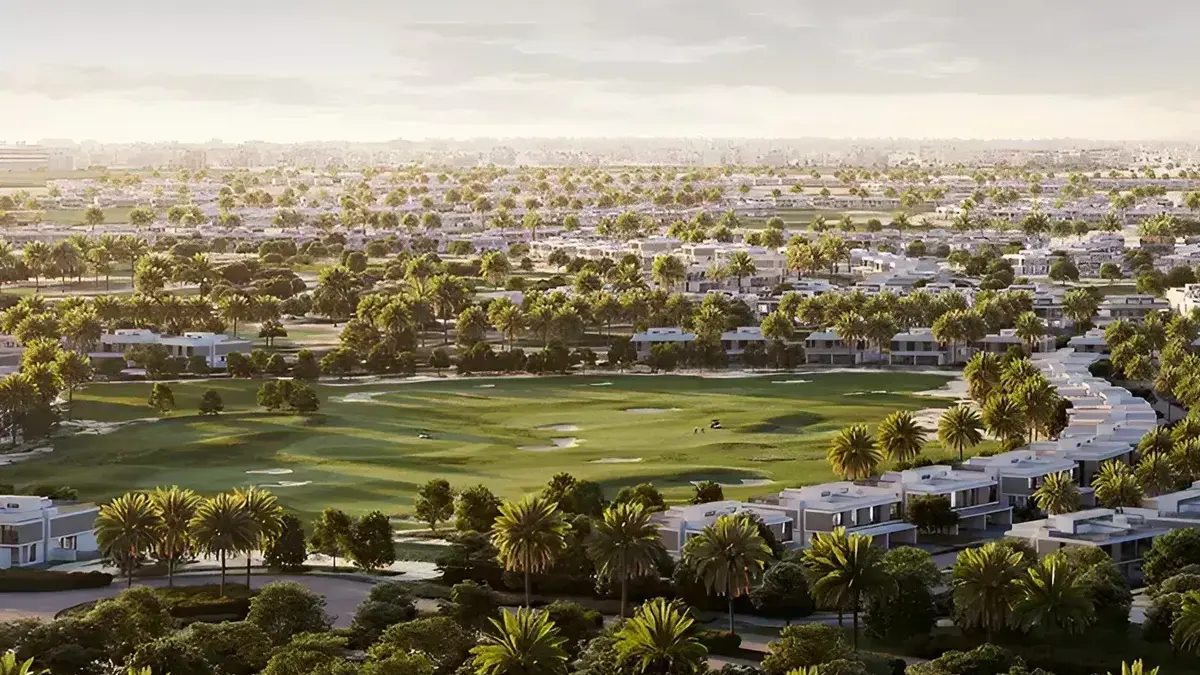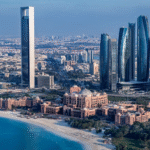Now Reading: UAE Cities: 7 Key Markets Adapting to New Property Tax Laws
-
01
UAE Cities: 7 Key Markets Adapting to New Property Tax Laws
UAE Cities: 7 Key Markets Adapting to New Property Tax Laws

Table of Contents
The UAE’s real estate market is thriving in 2025, driven by economic diversification, population growth, and investor-friendly policies. In 2024, the UAE recorded AED 893 billion in transactions across 331,300 deals, per the Dubai Land Department and other emirate authorities, with Dubai alone contributing AED 760.7 billion.
The introduction of new tax laws, notably the 15% Domestic Minimum Top-up Tax (DMTT) for multinationals with revenues above €750 million and a 9% corporate tax for businesses with income over AED 375,000, effective since 2023, has reshaped investment strategies, per Federal Decree-Law No. 47 of 2022. Individual investors, however, benefit from no capital gains tax, no annual property taxes, and transfer fees of 2-4% (often split with developers), ensuring high returns.
Seven key markets Dubai, Abu Dhabi, Sharjah, Ajman, Ras Al Khaimah, Umm Al Quwain, and Fujairah are adapting to these tax laws, leveraging freehold ownership and free zone benefits to deliver rental yields of 6-10% and capital appreciation of 8-12% by 2026. This article explores how these markets align with the evolving tax landscape.
Tax Landscape and Investment Appeal
The UAE’s tax regime remains attractive for individual investors, with no capital gains or property taxes, and a 2-4% transfer fee across emirates (e.g., 4% in Dubai, 2% in Abu Dhabi, Fujairah, and Sharjah). Residential properties are zero-rated for VAT on first sales within three years, allowing developers to recover input VAT, while subsequent sales and rentals are exempt, per the Federal Tax Authority (FTA).
Commercial properties incur 5% VAT on sales and leases, but businesses in free zones like Dubai Internet City, ADGM, and Fujairah Free Zone enjoy 0% corporate tax for qualifying activities, per Ministerial Decision No. 301 of 2024.
The DMTT and corporate tax apply to large businesses, but tax grouping allows profit consolidation, reducing liabilities. The Golden Visa, offering 10-year residency for AED 2 million+ investments, further boosts appeal. Below are seven key markets adapting to these tax laws.
1. Dubai – Luxury and High Yields
Dubai, the UAE’s real estate powerhouse, recorded AED 760.7 billion in 2024 transactions, with 226,000 deals, per the Dubai Land Department. Areas like Jumeirah Village Circle (JVC) and Dubai Creek Harbour offer rental yields of 7-9%, with off-plan projects like Samana Waves (AED 479,000 starting price) and Creek Waters (AED 1.6 million) benefiting from 4% transfer fees (often split) and no capital gains tax.
Free zones like Dubai Internet City provide 0% corporate tax, ideal for commercial leasing firms. The Smart Rental Index, launched in 2025, caps rent increases, stabilizing the market, per CBRE. A projected 5-8% price growth in 2025, driven by population growth to 4 million, ensures strong returns despite a potential 15% correction, per Fitch Ratings.
2. Abu Dhabi – Free Zone Tax Optimization
Abu Dhabi’s market saw AED 79.3 billion in 2024 transactions, with 25,046 deals, per the Abu Dhabi Real Estate Centre (ADREC). Projects like Mamsha Gardens (Saadiyat Island, AED 1.3 million) and Reem Hills (Al Reem Island, AED 5 million) offer 6-8% rental yields, leveraging ADGM’s 0% corporate tax for businesses. The 2% transfer fee and no property taxes enhance returns for individuals. A 202% price surge since 2020 in areas like Remah reflects strong growth, with 8-10% appreciation forecast by 2026. Tax grouping under DMTT rules minimizes corporate liabilities, making Abu Dhabi ideal for large-scale investors, per TaxVisor.
3. Sharjah – Affordable and Stable
Sharjah’s market recorded AED 17 billion in Q1 2025 transactions, up 159% year-on-year, per the Sharjah Real Estate Registration Department. Zones like Aljada (apartments from AED 450,000) and Al Nahda (apartments from AED 400,000) deliver 7-10% rental yields, with a 2% transfer fee and no capital gains tax.
Proximity to free zones like Hamriyah and Sharjah Media City offers 0% corporate tax for commercial ventures. A 243% price surge in Naseem Villas since 2020 and 8-10% projected appreciation by 2026 make Sharjah a low-risk market, per Gulf News.
4. Ajman – High Yields, Low Costs
Ajman recorded AED 16.35 billion in transactions by October 2024, with 12,718 deals, per the Ajman Department of Land and Real Estate Regulation. Projects like Ajman Creek Towers (apartments from AED 500,000) offer 9-10% rental yields, driven by affordability and proximity to Dubai.
A 2% transfer fee, often developer-covered, and no property taxes minimize costs. Free zones like Ajman Free Zone provide 0% corporate tax, benefiting leasing businesses. A projected 8-10% price growth by 2026, per Tekce, makes Ajman a high-yield, low-entry market.
5. Ras Al Khaimah – Emerging Tourism Hub
Ras Al Khaimah (RAK) is gaining traction with projects like Wynn Al Marjan Island, boosting tourism-driven demand. Apartments in areas like Mina Al Arab start at AED 600,000, offering 6-8% rental yields, per Whitewill.
A 2% transfer fee and no capital gains tax, combined with RAK Free Zone’s 0% corporate tax, attract investors. A 10% price increase in 2024 and projected 8-10% appreciation by 2026, fueled by 1.2 million visitors in 2024, position RAK as an emerging hotspot, per Gulf News.
6. Umm Al Quwain – Quiet Luxury
Umm Al Quwain’s market is quietly booming, with 302 luxury listings in 2024 and the highest average price per sqm ($619), per Bloom Holding. Projects like Marina Heights (apartments from AED 700,000) offer 6-8% rental yields, with a 2% transfer fee and no property taxes.
Proximity to Umm Al Quwain Free Zone supports 0% corporate tax for businesses. A 10% price growth in 2024 and 8-10% projected appreciation by 2026 make it ideal for investors seeking tranquil, high-value properties, per Property Finder.
7. Fujairah – Coastal Growth
Fujairah City’s market benefits from a 24% price increase in 2024, driven by port and airport expansions, per Bayut. Developments like Fujairah Beach (villas from AED 1.5 million) and Address Residences (apartments from AED 1.2 million) offer 7-9% rental yields, with full foreign ownership, a 2% transfer fee, and no capital gains tax.
Fujairah Free Zone’s 0% corporate tax supports commercial investments. An 8-10% appreciation forecast by 2026, per dxboffplan.com, aligns with tourism growth to 1 million visitors in 2025.
Adapting to New Tax Laws
These markets adapt to 2025’s tax laws through:
- No Capital Gains or Property Taxes: Individuals retain full sale profits and rental income (minus 2-5% municipal fees), per FTA guidelines.
- Transfer Fees: 4% in Dubai, 2% elsewhere, often split or reduced, lowering entry costs.
- VAT Framework: Zero-rated first residential sales within three years; 5% VAT on commercial properties, with input VAT recovery for businesses.
- Free Zone Benefits: 0% corporate tax in free zones like ADGM, Fujairah Free Zone, and RAK Free Zone for qualifying activities, ideal for corporate investors.
- Corporate Tax Optimization: Tax grouping under DMTT rules reduces liabilities for businesses, per TaxVisor.
- Golden Visa: AED 2 million+ investments qualify, enhancing residency benefits.
For U.S. investors, rental income and gains are reportable to the IRS, but double taxation agreements and deductions minimize liability. Off-plan projects offer 20-30% lower entry prices and flexible payment plans (10-20% down), but buyers should verify developers via local authorities (e.g., DLD, ADREC). Additional costs include AED 2,000-4,000 registration fees and 5% VAT on furnishings for rentals. AML compliance, strengthened in 2024, ensures transparency, per Greenberg Traurig.
Why Invest in These Markets in 2025
The UAE’s real estate market is projected to grow at a CAGR of over 8% through 2030, driven by population growth (2.5% annually), tourism (40 million visitors by 2030), and infrastructure like Etihad Rail and Al Maktoum Airport, per Mordor Intelligence. These seven markets offer diverse opportunities, from Dubai’s luxury to Ajman’s affordability, with tax perks and freehold ownership ensuring high returns. Investors should monitor potential VAT adjustments and emirate-specific fees, per TaxVisor. UAE Cities
read more: Jumeirah Village Circle: 5 Projects With Low Entry and Tax Impact






















